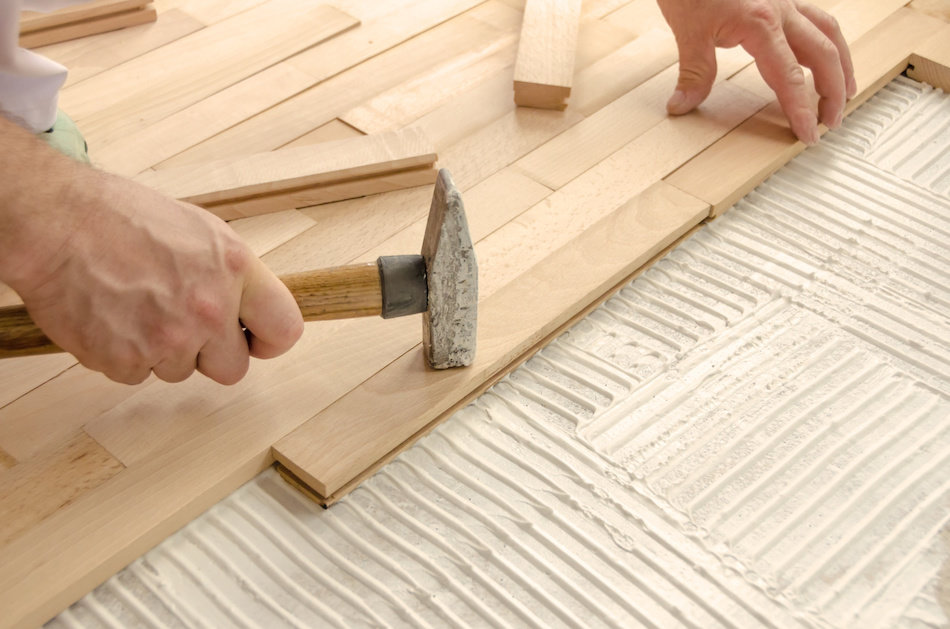How to Pick the Right Flooring for Your Home
Posted by Justin Havre on Friday, May 18th, 2018 at 8:47am.
 A room's floor is one of its most striking features, and a major opportunity for homeowners to express their personal style. The 'best' flooring isn't necessarily the most expensive or trendy, but that which complements the homeowner's lifestyle. But with so many different types of flooring available, it can become overwhelming to try to narrow down the choices. To get started, it helps for homeowners to understand the pros and cons of each type of material.
A room's floor is one of its most striking features, and a major opportunity for homeowners to express their personal style. The 'best' flooring isn't necessarily the most expensive or trendy, but that which complements the homeowner's lifestyle. But with so many different types of flooring available, it can become overwhelming to try to narrow down the choices. To get started, it helps for homeowners to understand the pros and cons of each type of material.
Carpet
Carpeted living rooms and dens have slipped in and out of vogue over the past few decades, but it still remains the number one choice for homeowners in Glenbow and beyond. Not only is carpeting cozy enough to warm up any room, but it's also an investment in the residents' personal safety. Little feet who are just starting to walk can get the traction and the cushion they need as they find their footing. Carpeting is not recommended for any rooms that come into constant contact with water or moisture because the fibers will lock in mildew which can lead to mold.
Hardwood
Hardwood is chosen by homeowners who want their floors to stand up to heavy traffic, making it perfect for a dining room that will house a mahogany table that seats 11. Hardwood is an undoubtedly classic choice for homeowners who want to make a statement, and an investment that will typically increase the resale value of the home. However, it should be noted that hardwood floors are sensitive to moisture and can warp or bend if exposed to too many spills. Plus, they can be rather slippery if there are unsteady feet in the home. Traditional hardwood floors can be livened up and protected with the addition of colorful rugs.
Tile
Unlike carpets and hardwood floors, tiles are built to withstand plenty of water. Perfect for kitchens and bathrooms alike, tile is easy to clean and maintain because its stain-resistant. Tiles have also maintained their popularity over the years which has led to a major upgrade in terms of selection. Now people can buy them in practically any shape, material, and color. The only warning for homeowners is that tile needs to be sealed perfectly, so that while installing tile flooring is a great DIY project, it may be best to hire a professional for help. Grout that hasn't been properly sealed may become weathered or even quickly start to accumulate mildew.
Stone
Granite, marble or limestone flooring are all beautiful additions to a home that homeowners typically don't regret (especially in the case of a luxury home.) The beauty and durability of natural stone are unparalleled, though homeowners will need to be prepared for additional maintenance throughout the floor's lifetime (e.g., extra cleaning and maintenance duties.) If the homeowner opts for natural stone tiles, they'll still need to be aware of potential grouting issues.
Alternatives
New technology in home flooring means more options for homeowners today, including pre-finished wood, sheet linoleum, and concrete. These new materials are more resistant to water and eliminate resealing or potential grouting issues. Plus, homeowners don't have to sacrifice aesthetics by choosing these more modern inventions. Concrete has always been a durable choice, but in the past years, it's also become an attractive choice that manages to hold up to the beauty and versatility of tile.
Picking the right flooring doesn't have to be complicated, but a homeowner should be prepared to answer a few basic questions about what they want out of their flooring before installing. The right choice depends on everything from the people in the home to the structure itself.
